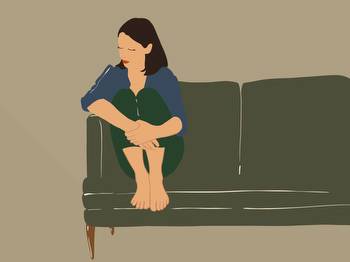New guidelines released for Windsor-Essex residents to consider before gambling

WINDSOR, ONT. -- With local casinos reopened and online betting easier than ever, there are concerns that problem gambling could be on the upswing.
New guidelines have been released by the Canadian Centre on Substance Use and Addition (CCSA) aimed at helping reduce the harm caused by gambling.
“It doesn’t matter how educated you are. It doesn’t matter your socioeconomic status. Your religion, your gender. It has no baring,” says gambling counsellor Chelsea Rodrigues.
Rodrigues says the new guidelines are welcome at Hotel Dieu Grace Healthcare in Windsor-Essex telling CTV News there is concern that those who have been diagnosed with a previous gambling addiction could relapse with the easing of indoor restrictions and access to online wagering.
“We highly encourage people who have already been diagnosed with a problematic or addictive gambling disorder, not to go in and test the waters and say well it’s been so long since I’ve been to the casino, I just wonder how I’ll fare now that we’re open again,” she says.
The CCSA recommendations includes gabling no more than one per cent of your household income per month, gamble no more than four days a month, and keep regular gambling to two or fewer types of games.
“It’s really just a way of limiting people’s gambling participation,” says Dr. Matthew Young who co-chaired the scientific committee that developed the CCSA guidelines.
Young says the guidelines should go hand in hand with each other for harm reduction.
“The reason some people experience some harm from gambling is the expenditure and then there’s also the time away from family and friends or time spent gambling that could have been spent doing other things,” Young says.
Meanwhile, Rodrigues says there is space available for in-person treatment for problematic gambling, explaining the wait time between first phone call and consultation is typically two days.
“We are seeing clients face to face,” she says. “We still have a residential program running and fortunately our wait time and our wait list is not long.”
Rodrigues adds, “It doesn’t need to get so bad that you come here in a crisis. It can come if you’re have questions or if you’re a loved one of a gambler and you have some questions about somebody else’s behaviours, you’re more than welcome to come and receive that information.”
She says anyone can fall victim to problematic gambling, saying it’s best to plan on losing.
“If you’re honest with yourself about your intentions before you go gambling if it really is just for entertainment and you can afford it no problem, go for it,” Rodrigues says. “However, if you’re going for any other reason than that, that should raise some red flags and we’re definitely here to talk about it.”




































